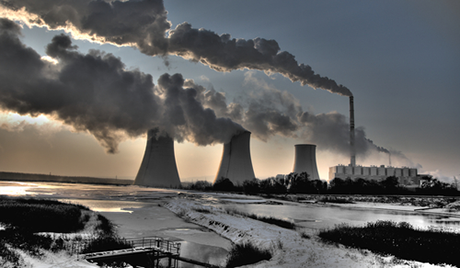
The call for a price on carbon is growing louder in the corridors of business and government. Last week, former U.S. Treasury Secretary Hank Paulson wrote in The New York Times that climate risks are perhaps the biggest “known unknown” that we face, and he asked “farseeing business leaders” to demand a price on carbon—it’s the quickest, most efficient way to manage these risks.
Paulson was previewing the Risky Business report, which calculated the economic impact of climate change on U.S. businesses’ balance sheets. A few days later, CDP released a report on corporate use of internal carbon pricing.
CDP surveyed executives to find out why leading businesses are already valuing carbon to future-proof their business plans. It is interesting to note that some of the largest U.S. utilities, including American Electric Power and Exelon, price carbon in an effort to avoid stranding large fossil-fuel-fired power plants and to reassure investors. Other less carbon-intensive businesses use internal prices to help achieve corporate sustainability goals—TD Bank aims to go carbon neutral, and Walt Disney Corporation (as well as Microsoft) uses internal pricing to encourage employee innovation while delivering profits. The value of encouraging more sustainable growth like this came through this week in the World Bank Group’s new Adding Up the Benefits report, which calculated the value of climate-smart development in lives, jobs, and economic growth, as well as the climate.
Leadership in the 21st century will be defined by these and other forward-looking businesses that re-define economic growth to focus on people, planet, and profits. They are showing that we can have it both ways; that being green is the only way to keep companies—and our economies—in the black. And perhaps most importantly, they are contributing their voices—and political support—to governments aiming to solve the climate problem.
This leadership is being noticed.
The World Bank Group’s “Put a Price on Carbon” initiative, working with partners including the United Nations Global Compact and its 10,000+ members, CDP, the Prince of Wales Corporate Leaders Group, the International Emissions Trading Association, the World Business Council for Sustainable Development and investor group Ceres, is highlighting leadership and encouraging governments and companies to support carbon pricing ahead of the United Nations Secretary-General’s Climate Summit in September. This week, we welcomed a number of corporate leaders, including Ernst & Young, GDF Suez, and Unilever, to the cause. We look forward to adding leading businesses from other sectors, and from the emerging markets, to this list.
At the summit, we will convene a high-level dialogue between heads of government and industry about the role of carbon pricing in keeping the world from dangerous warming and pulling together leaders to accelerate the shift toward carbon pricing as the world heads toward an international climate agreement in Paris in 2015. Have your company join us by supporting the Pricing Carbon Statement today.


Join the Conversation